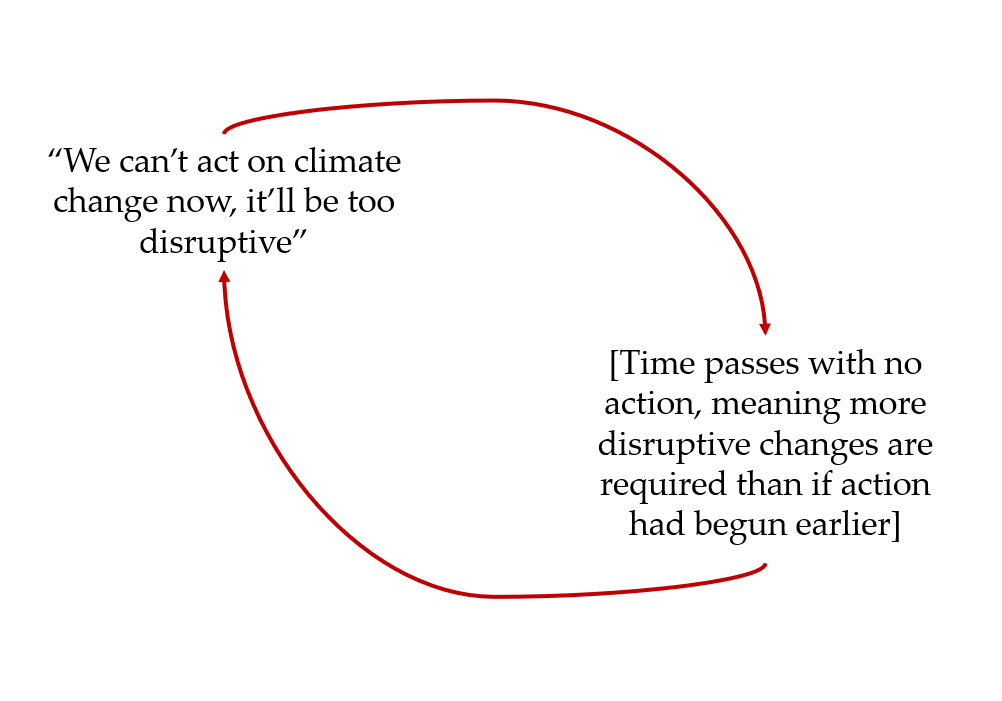There’s a new Handbook of Anti-Environmentalism, which is a new term to me. It seems it should be commonplace. For it articulates the madness which we have experienced in the 20th and 21st centuries, descending on us like a dark, inarticulate cloud. The delay and denial of anti-environmentalism is like the squid’s ink, which serves to obscure and conceal. Rather than being an accident, a casual gesture, anti-environmentalism is a paradigm, a research program, and an ideology, centered on retaining power over others; in short, domination.
Of course, anti-environmentalism, while the term is new, is not new as a concept. It borrows heavily from Proctor’s agnotology, the merchants of doubt, and the study of denial and the systemic spread ignorance. Ignorance as a disease vector could be seen as a form of industrial epidemics. Disease is the outcome of externalities, which are baked into certain types of processes, which deny that the externalities are intrinsic parts of the processes of extraction.

In other words, anti-environmentalism is a form of slow violence, but one that compounds. The slow violence of anti-environmentalism doesn’t just poison the earth as us inhabitants, but also infects us with self-covering-up brain worms that prevent us from even being aware of what we no longer are aware of or deny. This is the looping property of agnotology, that we are not even aware of what we are not aware. Becoming aware of this vast expanse of knowledge would threaten our entire worldview, thus sending us into either ego death, cognitive dissonance, or conceptual chaos. We would feel as if our previously held beliefs were false, and thus our previous goals, projects, aspirations, desires, and actions were inauthentic, based on a lie, and hence perhaps even counterproductive. Such a realization is too much for most mortals to bear, as there is much pain involved in these revelations.
Like Hannah Arendt writes in On the Origins of Totalitarianism about bureaucracies, anti-environmental countermovements are made to be like onions, with one shell group inside the next, with nothing of substance at the center, only air that will make your eyes tear. Anti-environmental countermovements, and frontgroups in general are usually collusions between self-interested individuals controlling public and private groups in order to keep their mafia work going, to keep oligopoly alive, and to make domination total again.
The term itself ‘anti-environmental’ is a timely and powerful antidote to the staid news reporting which fails to include the insidiousness of anti-environmentalism. To wit, in a recent New York Times article announcing the $1.1 billion gift John Doerr gave to Stanford University to create the Stanford Doeer School of Sustainability, the inaugural dean of the schooln Arun Majumdar insists: “We will not go into the political arena,” he said. “That’s a very slippery slope for us.” To not go into advocacy for environmental issues when environmental issues are 99% political is to prove that this big billion donation will shoot itself in the foot, and perhaps even be counterproductive. But it gets worse:
Mr. Majumdar, who currently holds a chair at Stanford named for Jay Precourt, a businessman who made his name in the oil business, also said that the new school would work with and accept donations from fossil fuel companies.
“Not all oil and gas industries are on board, but there are some who are who are under pressure to diversify, otherwise they will not survive,” Mr. Majumdar said. “Those that want to diversify and be part of the solutions, and they want to engage with us, we are open to that.”
This kowtowing to the fossil fuel industry, making those responsible for the problem, and the very worse and heavy-handed anti-environmental tactics, is courting the devil. Co-optation of the school, even if it had pure intentions, will ensure that any actual environmental agenda gets hijacked and hopelessly diluted, or worse, sent into cloud cuckoo land of geoengineering, techno solutions, and more indulgences to let the fossil fuel industry keep on polluting.
Anti-environmentalism has brought us enough hair-brained schemes that have focused on CO2-reductionism at the expense of blocking and stopping continued ecocide. That a new monstrously funded school of sustainability will likely actually be a school of unsustainability the moment it ‘partners’ ‘strategically’ with the merchants of doubt, will create yet another anchor of ignorance in our society, all the while believing to be upholding righteousness. This gaslighting will be unbeknownst most of all to those participating in it, and most palpable at the frontlines of the worsening environment from the continued pollution for which such an institution will be running interference and apologetics.